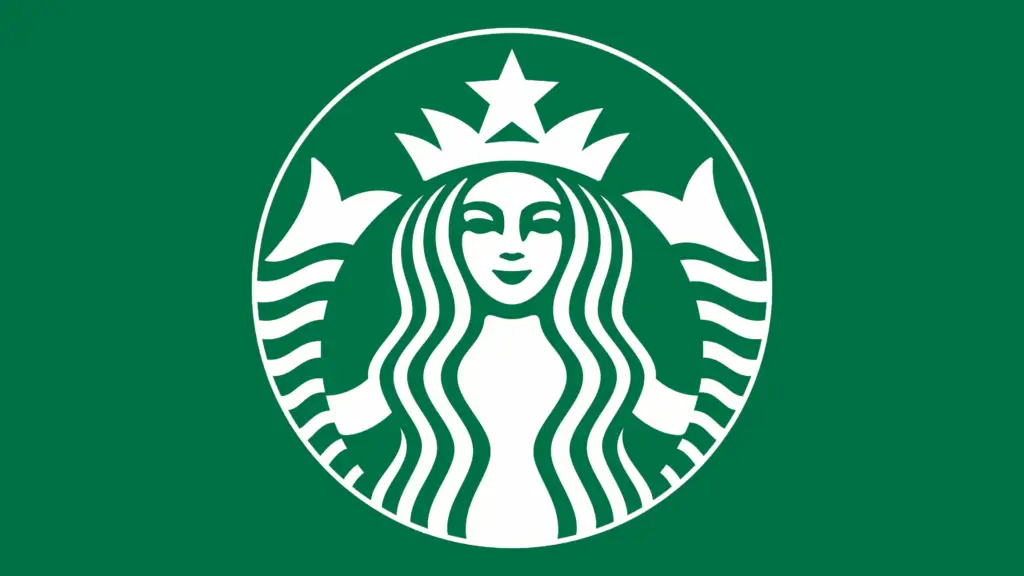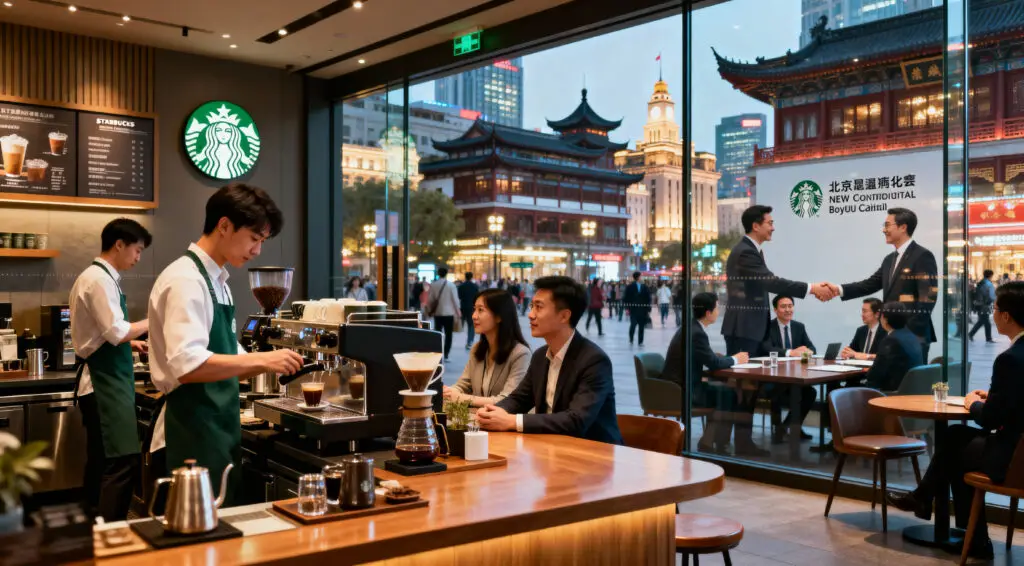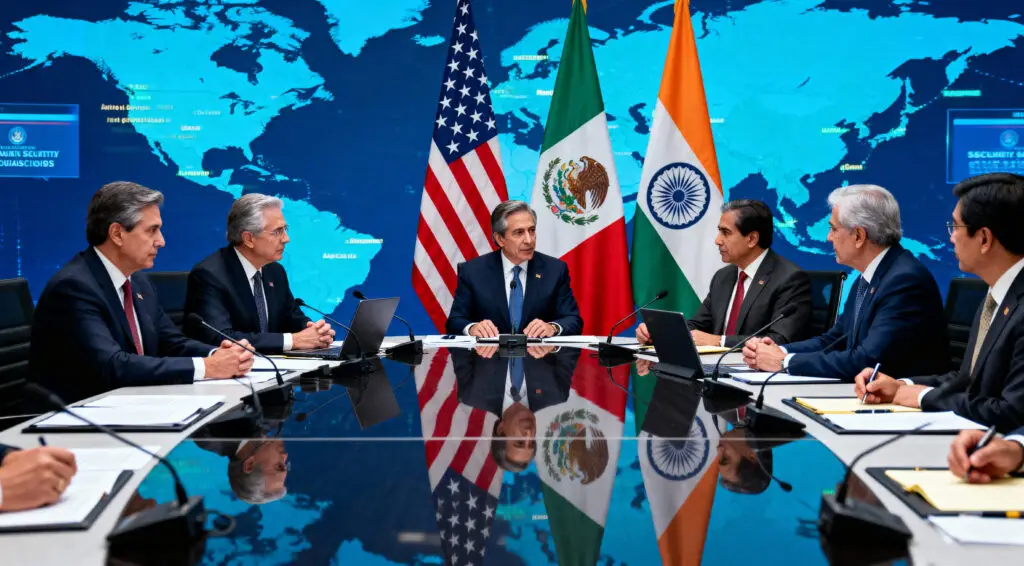Starbucks Partners With Boyu Capital to Strengthen China Presence
Starbucks said it will sell a 60% share in its Chinese company to Boyu Capital for $4 billion. Through a new joint venture, the Hong Kong-based private equity group will run most of Starbucks’s retail operations in mainland China.
The U.S. coffee giant will keep 40% of the company and keep control of its global brand and intellectual property rights. The decision shows that Starbucks is trying to boost growth and get back its advantage in 1 of its biggest regions.

Source: Logos-world
Boyu Capital Partnership Marks A New Chapter For Starbucks China
Boyu Capital has offices in Shanghai, Beijing, and Singapore. It was started by businesspeople, including Alvin Jiang, the grandson of former Chinese President Jiang Zemin. Starbucks called the purchase a “new chapter” in its 26 years in China.
The new venture will give Starbucks both money and strategic help to grow its business in smaller regional locations. It also gives the organization better access to Boyu’s extensive networks for logistics and infrastructure.
Ambitious Expansion Plans Target 20,000 Stores Nationwide
Starbucks has about 8,000 stores in China right now, but it wants to open 20,000 more. The business stated that its new structure will help stores open faster and make the local supply chain work better.
Market analysts say that the partnership is very important for growth in China’s competitive coffee market. The joint venture makes it easier for Starbucks to respond to changes in how people shop and the economy in different areas.
Recommended Article: Kimberly Clark Buys Tylenol Maker Kenvue in $48.7B Deal
Local Competitors Continue to Outpace Starbucks Expansion
Starbucks was successful at first, but it has been losing market share to domestic chains like Luckin Coffee, which has more than 26,000 stores. Luckin’s dominance in smaller cities and lower prices have changed the market.
At Starbucks, a regular Americano costs 30 yuan ($4.21), but at Luckin, the same drink costs about 10 yuan ($1.40). Younger people are more likely to choose local brands because of these price differences and digital loyalty programs.
Consumer Preferences and Pricing Challenges Shape Market Dynamics
Olivia Plotnick, a marketing expert, said that Starbucks has had a hard time competing with domestic brands that offer technology, convenience, and low prices. The rise of milk tea and other drink trends has made things even harder.
Plotnick said that discounts and quick delivery have made competition stronger among delivery apps. These “delivery platform wars” have changed what customers expect, and international brands have to change or risk losing even more ground.
Starbucks Follows Precedent Set By Global Food Chains In China
Analysts in the industry look at Starbucks’s strategy and compare it to what other Western brands have done in the past few years. Yum Brands sold parts of its KFC and Pizza Hut China businesses to Primavera Capital and Alibaba affiliates in 2016.
McDonald’s adopted a comparable plan in 2017, selling a controlling share in its China, Hong Kong, and Macau businesses to CITIC and Carlyle Capital. The move helped McDonald’s increase its China stores to nearly 5,500 by 2023.
New Joint Venture Poised To Reignite Starbucks China Growth
Through its arrangement with Boyu Capital, Starbucks receives vital local understanding, money, and logistical connections needed for sustainable development. Analysts think this structure will mimic McDonald’s and Yum’s prior success stories.
If executed effectively, Starbucks could reassert its position in the Chinese market while appealing to both urban professionals and new consumers in emerging cities. The company thinks this alliance will redefine its future in Asia’s fast-evolving coffee industry.























